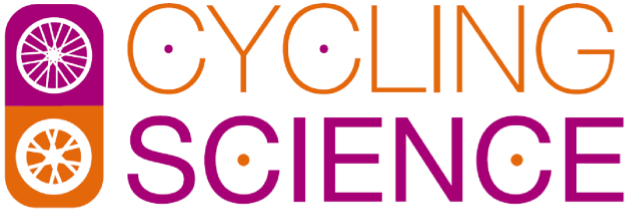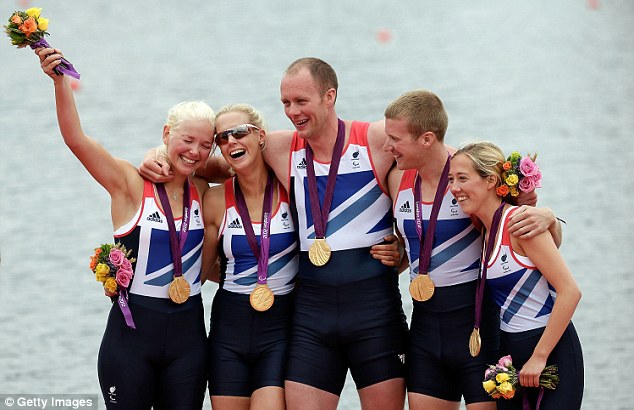
This interview covers his life story, all of the ups and downs to where he is now, training on his bike 14-16 hours a week trying to build up his strength with an eye to the UCI World Championships in Glasgow in 2023.
A miracle baby who defied death, surviving a crippling childhood and medical misdiagnoses, followed by tumours, blood clots, strokes and paralysis, a life of agonising pain and multiple life threatening operations. But what is even more remarkable is the fact that these horrors were miraculously intertwined with successes in any sport to which David happened to turn his hand. A true survivor who has stared death in the face several times throughout his incredible life and has simply refused to give in. All odds have been defied and doctors’ advice ignored in a truly extraordinary story of one man’s quest to not only live – but to win.
David was born in Dunfermline, in 1978, with two club feet and came close to having both feet amputated but endured multiple surgery to have them reset. He then spent his first three years learning to walk in special boots and plaster casts and no one could have predicted that this was the start of an Olympic career. Maybe this adversity made him more determined as it quickly became evident that he was a highly competitive sportsman who just wanted to win.
His first love was Karate and he soon gained his black belt and represented Britain in World Championships for six years.
Desperate to be an Olympian, he switched to sprinting and became a 400 metre champion but a series of stress fractures meant he had to think again. Concluding that the stress fractures were caused by running round the bend David switched to a sport where you only had to run in a straight line, Bobsleigh, where he was selected for team GB as a brakeman. However neck and back pains interrupted his training and he just missed out on selection for 2006 Winter Olympics by one hundredth of a second.
David still desperate for Olympic success changed sport again, this time to rowing He quickly became established in the Paralympic team in the legs, trunks and arms adaptive mixed coxed four. Success came quickly winning World Championship Gold in 2009.
In normal circumstances this would have been the launchpad for further success but it was at this point that David was diagnosed with a tumour in his neck probably explaining the pain he had been feeling. So he had to undergo a very invasive operation to remove this tumour and leaving him three vertebrae light, his neck a bionic structure of cages and screws.
If this wasn’t bad enough shortly after the operation to remove this tumour David nearly died when a large blood clot formed at the site of the tumour, requiring a further operation to stop the clot crushing his spinal cord. Many would have given up any further sporting ambition but not David, after extensive rehab he was back rowing and back winning, winning the 2011 World Championship, which gave the team qualification to the London 2012 Paralympics. And as they say the rest is history with David and his team winning Paralympic Gold. He was awarded an MBE in the 2013 New Year Honours.
However, the rowing had taken its toll and injury issues forced David to again change sport. He wasn’t just going to quit he was still hungry for success so in 2014 the joined the British Cycling Paralympic Academy programme. David loved his cycling and he was beginning to get some success with his ultimate target of Rio 2016, when another blow. The tumour was back!
The surgeons were not hopeful as they gave David a 1/500 chance of survival, at best he might be paralyzed from the neck down and worst of all his cycling career was over. So here he was again. Flat on his back in a hospital bed, in extreme pain a hole in his spine where they drilled through his neck and hacked out a tumour the size of a tennis ball…
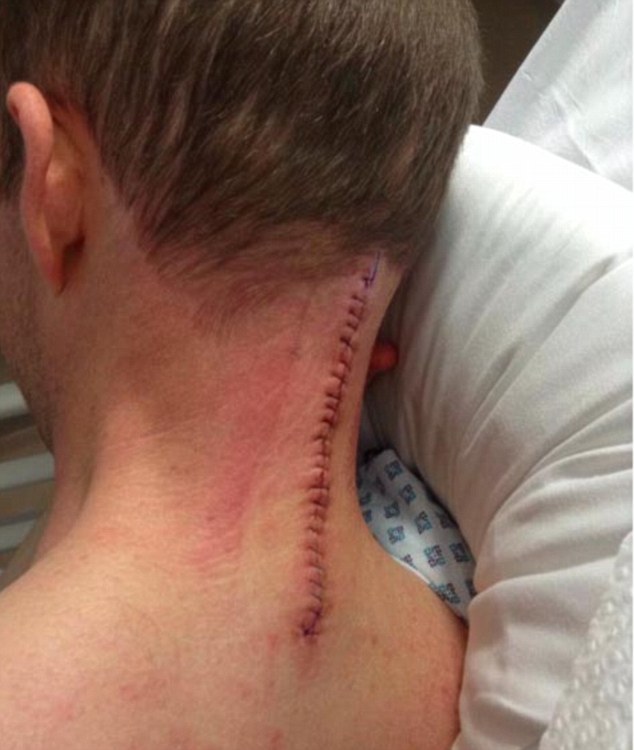
… you can’t walk. You can’t sit up. You can’t eat. You’re drugged to the eyeballs, unable to move pretty much anything below the waist. What would most of us be thinking? Give up!!
Not David, his first thought after coming round from the anaesthetic? “Rio 2016 is only two years away – I need to get back on a bike.”
What you need to consider here is that this is someone who now needs to learn how to walk again, who initially will struggle to complete the most basic tasks of self-care like brushing his own teeth and all he wants to is, to win a bike race at the Olympics. So that was the target he set himself.
Well not quite, his first target was to get himself fit enough to be able to cycle up one of the most feared climbs in France, Mont Ventoux. and to do the three accents of the Now believe me I know I have cycled up there and it is over 20km of unrelenting gradient. But of course doing it once was not good enough for David he wanted to do it three times in one day known as the Club, de Cingles, and all this just 6 months after his surgery. Thankfully for all of us this was captured for a BBC documentary called ‘Dead man cycling’. It covers an 18 month period before and after his surgery and I encourage all of you to go away and watch it. Personally I found it one of the most inspiring documentaries I have ever watched and I am sure you will all feel the same.
Of course David did manage to complete his 3 ascents of Mont Ventoux but unfortunately in Jan 2016 the tumour returned, requiring a further operation and thus put an end to David’s Rio 2016 ambition.
Upon waking from that operation David found that he was paralysed down one side of his body. Of course determined as usual he spent the next 8 months trying to get his body to work again – as David recorded in his blog “It was no longer about medals or titles it was about living”.
David was awarded an Honorary Doctorate from the University of the West of Scotland in 2017.
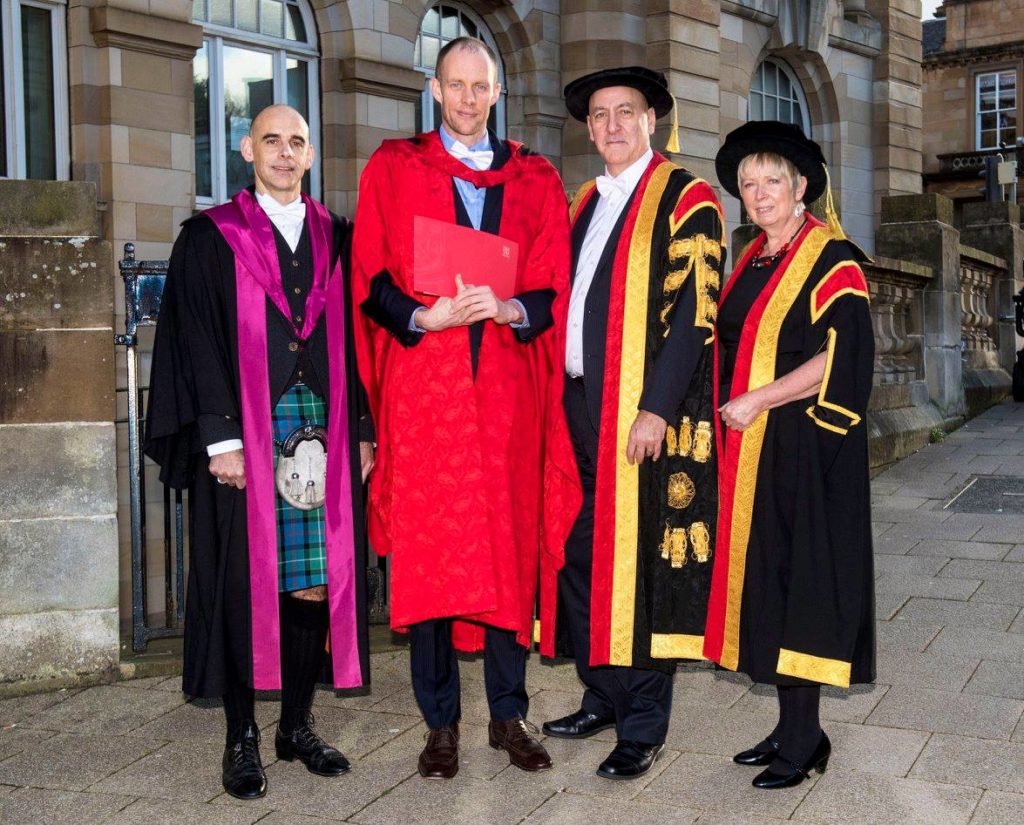
Of course you cannot take out the competitive animal within and soon david was back racing again, maybe not winning but at least racing again racing his first pursuit in November 2017. Getting a Bronze medal in a small international event.
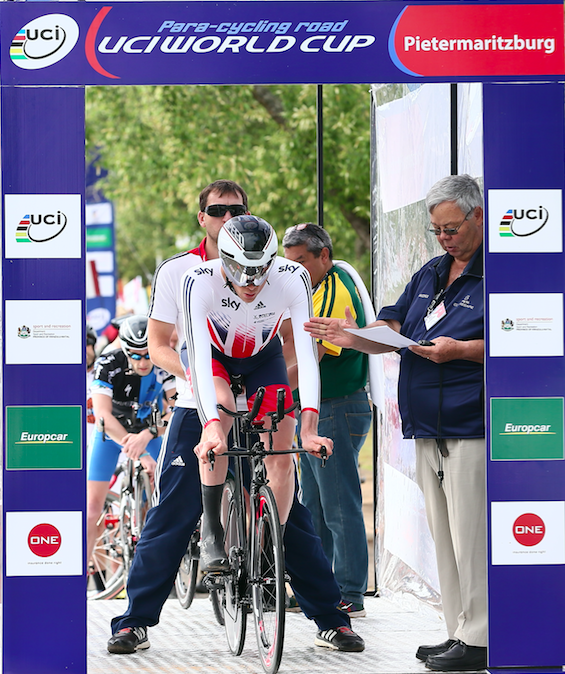
Further progress led to riding at the World Championship in 2018 gaining a very credible 13th place.
But at the end of 2018 his tumour was back requiring a 5th and 6th operation and the whole learning to walk process again. But a Wattbike at the end of the bed was all of the stimulus he needed to get going. Just 10 minutes initially then just a bit more each day.
Now that has stretched to 14-16 hours of training every week with sight set on the UCI World Championships in Glasgow in 2023. And although David is basically paralysed down his left side and at best only has 24% power in his left leg he still manages efforts at 300w peaking at 500w, not bad for basically one leg!
Anyhow we wish David all the best in his current journey towards he UCI World Championships in Glasgow in 2023.
